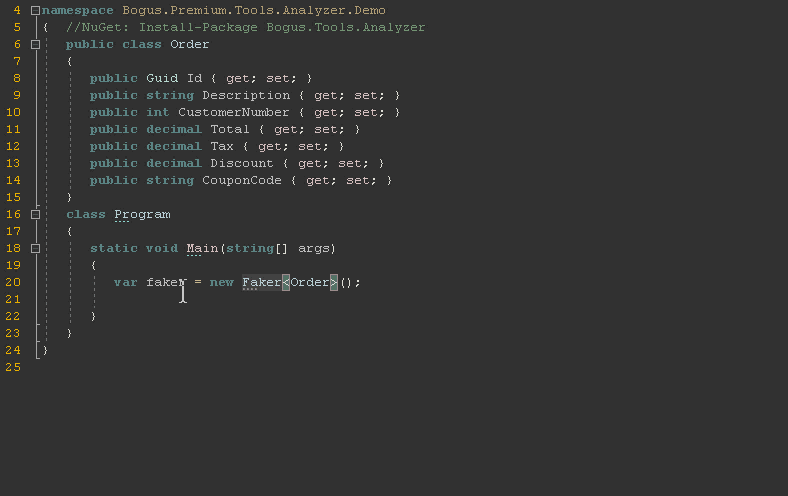Hi @AhmedMagdu , you'll need to be more specific with your questions:
how to make this code generic or dynamic if have entityDto is customer how to make map properties of person in Faker customer have some properties and have List about customerAddresses how to make actually map with Address in Faker
What do you mean "more generic or dynamic"? What problem are you trying to solve?

Bogus NuGet Package
35.5.0
.NET Version
.Net 7
Visual Studio Version
2022
What operating system are you using?
Windows
What locale are you using with Bogus?
en
What's the problem?
how to make this code generic or dynamic if have entityDto is customer how to make map properties of person in Faker customer have some properties and have List about customerAddresses how to make actually map with Address in Faker
Provide LINQPad Example
N/Y
What other possible solutions or alternatives have you considered?
N/Y